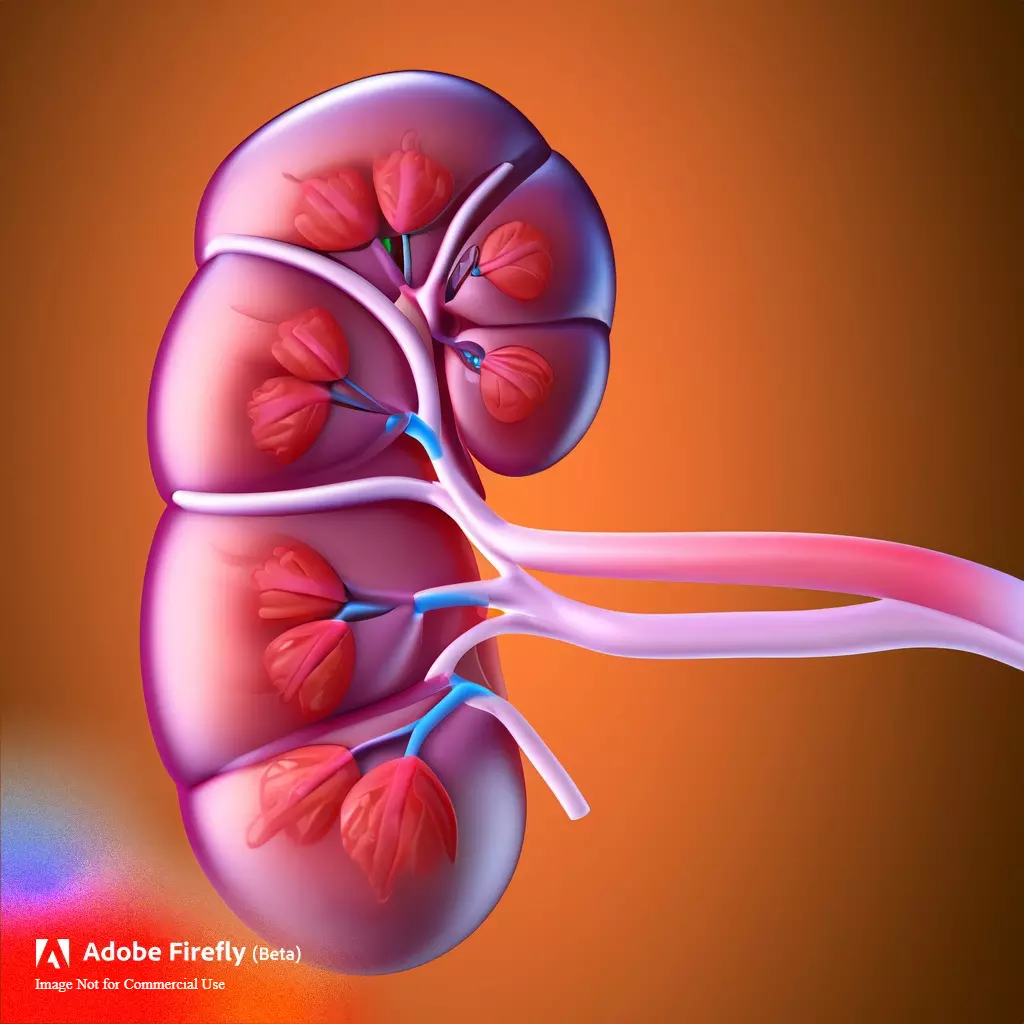Kidney disease is a stealthy adversary, often lurking in the body without triggering noticeable symptoms, especially in its early stages. This is due to the remarkable adaptability of the human body, which can often compensate for a significant reduction in kidney function. In this article, we explore the subtlety of kidney disease at its inception, shedding light on the reasons behind the absence of symptoms and the importance of early detection.
Kidneys, the bean-shaped organs located on either side of the spine, play a vital role in filtering waste and excess fluids from the blood, regulating electrolytes, and maintaining overall bodily homeostasis. Kidney disease, however, can stealthily progress for an extended period before manifesting noticeable symptoms.
Symptoms Of Kidney Disease
1. Adaptive Functioning: The kidneys are remarkably adaptable, and even when a substantial portion of their function is compromised, they can continue to perform adequately. This adaptability allows them to compensate for gradual damage, which often delays symptom onset.
2. Gradual Decline: Kidney disease typically advances slowly, over several years or even decades, depending on the underlying cause and individual factors. This gradual decline may not trigger symptoms until the disease reaches an advanced stage.
3. Routine Blood Tests: In some cases, kidney dysfunction is first detected through routine blood tests that measure creatinine levels and estimate glomerular filtration rate (eGFR). By the time these markers deviate from the norm, significant kidney damage may have already occurred.
As kidney disease progresses, the ability of the kidneys to effectively filter waste and regulate fluid and electrolyte balance diminishes. Symptoms begin to surface when the kidneys can no longer compensate adequately. Common symptoms of advanced kidney disease may include:
1. Fatigue: Due to the buildup of waste products and anaemia, individuals with kidney disease often experience persistent fatigue and weakness.
2. Swelling: Retention of fluids can lead to swelling in the hands, feet, ankles, and face.
3. Changes in Urination: Kidney dysfunction may cause changes in urination patterns, such as increased frequency, foamy or dark urine, or the presence of blood in urine.
4. High Blood Pressure: Uncontrolled high blood pressure is a common consequence of kidney disease.
5. Nausea and Vomiting: The buildup of waste products can lead to gastrointestinal symptoms like nausea and vomiting.
Early Detection and Management
Detecting kidney disease in its early stages is crucial for effective management and prevention of complications. Routine check-ups, especially for individuals with risk factors such as diabetes, hypertension, or a family history of kidney disease, are essential. These check-ups often include blood and urine tests that can reveal early signs of kidney dysfunction
Kidney disease’s silent progression in its early stages underscores the importance of regular health check-ups and monitoring, particularly for individuals with risk factors. Early detection allows for timely intervention and lifestyle modifications that can slow or halt the progression of the disease. By increasing awareness of kidney health and proactively addressing risk factors, we can empower individuals to take charge of their kidney health and potentially prevent the onset of advanced kidney disease and its associated symptoms.
Also Read : Comprehensive Guide To Anaemia: Causes, Symptoms & Effective Treatments
https://thelogicalindian.com/h-upload/2023/09/01/500x300_233151-firefly-images-of-kidney-89443.webp
Trending
2023-09-01 09:44:07.0
Silent Progression Of Kidney Diseases: Know About Its Early Stages & Absence Of Symptoms












